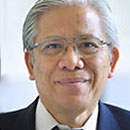Most Filipino entrepreneurs in Canada did not immigrate specifically to engage in business. In the 2006 survey in connection with our study of Filipinos in Canada, only 2.7 percent of 514 respondents had business experience before arriving in Canada. Many of the early Filipino businessmen then started out as “accidental entrepreneurs”.
They saw business opportunities and pursued them in typical bahala na fashion (let’s see what happens).
Many of these early Filipino entrepreneurs went into business because they could not find salaried jobs that were satisfactory. Others wanted to be their own boss. A few had special talents and decided to use them. Many were simply gaya-gaya (copycats), who saw others doing well in a certain type of business and felt they could do as well if not better. The interesting outcome is that whatever their motives and despite their lack of experience, quite a number of these Filipino entrepreneurs did quite well through ups and downs over the years.
For example, Filipinos in the 1970s got into business largely by accident. Noticing the lack of certain services needed by their kababayans, they filled up the gap. For the last 50 years, Filipino Canadian businesses have followed the same pattern. Nurses opened restaurants, pharmacists became realtors, engineers ran computer repair shops, and former caregivers ended as receptionist in nursing homes. Unlike Chinese and Korean immigrants who immigrated to Canada with the singular purpose of setting up businesses, most Filipino immigrants were skilled workers, family-sponsored or caregivers and domestic workers whose education and skills were often not geared for business.
Other problems faced by Filipino businesses were (1) poor choice of business venture, (2) unsuitable location with no parking, (3) failure to maintain quality and high standards, (4) unwilling to pay (probably due to lack of funds) for services needed to ensure success in business such as legal fees, accountancy and marketing/promotional consultancy. Many dismissed the need for such services as unnecessary because kaya na namin yun, kami na lang ang gagawa (we can do it so we’ll just do it ourselves).(5) lack of professional service orientation toward their clientele such as an unbusiness-like attitude of maghintay sila, kailangan nila tayo (let them wait; they need us anyway).
Filipino business people who survived those early years of entrepreneurship did so because they learned their lessons quickly and adjusted their business conduct accordingly. They realized that they must consider several factor before going into business: personal interest and motivation, availability of sufficient capital, a realistic business plan that budgets for the lean period until the business turns a profit and becomes a self sustaining venture. Many of the early sari-sari stores and turo-turo restaurants in Toronto, for example, killed each other through cutthroat competition.
The growing Filipino population in Canada has produced a new breed of Filipino entrepreneurs. They are young, info tech savy and professional business oriented. The highly educated ones have MBAs while trades people learned their skills and earned their training and apprenticeships through Canadian trade institutions like BCIT and Langara. They all know how to do business the Canadian way as demanded by their Canadian consumers. They aim to serve not only Filipinos but the mainstream Canadian society and offer goods and services to suit their common needs.



